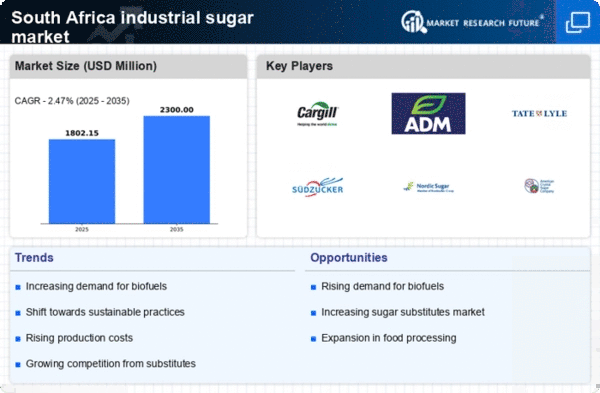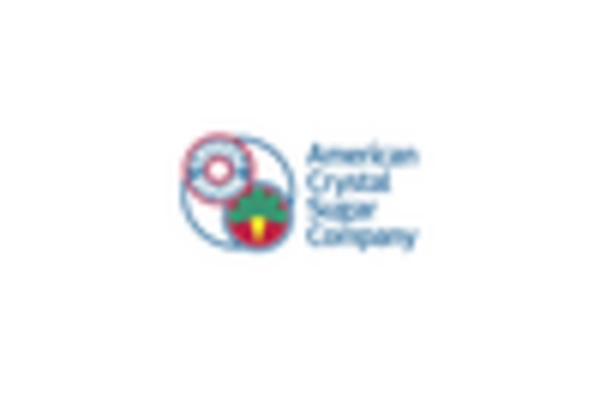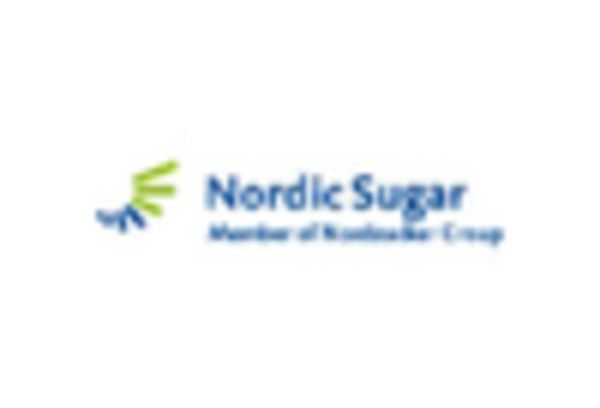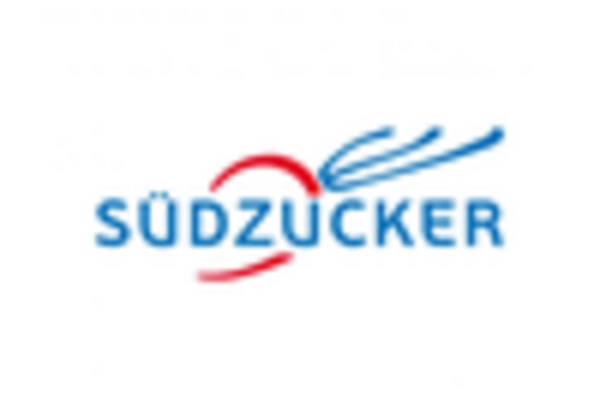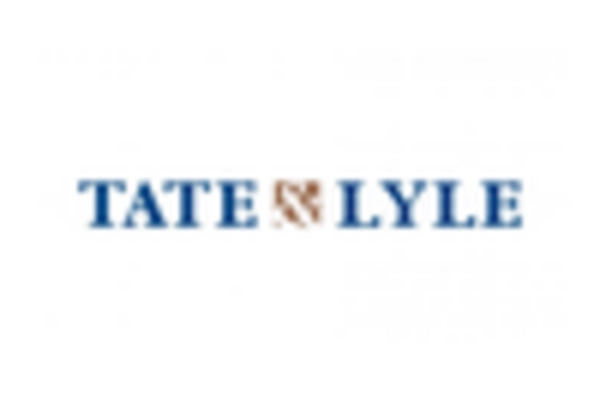Government Policies and Regulations
Government policies and regulations play a crucial role in shaping the industrial sugar market in South Africa. The government has implemented various measures to support local sugar production, including tariffs on imported sugar to protect domestic producers. As of 2025, these tariffs are set at 30%, which significantly impacts the pricing dynamics within the market. Additionally, the government promotes initiatives aimed at enhancing the sustainability of sugar production, which may influence the operational practices of manufacturers. Compliance with these regulations is essential for companies operating in the industrial sugar market, as non-compliance could lead to penalties and loss of market access. Therefore, understanding and adapting to the regulatory landscape is vital for stakeholders in the industrial sugar market to ensure long-term viability and competitiveness.
Export Opportunities in Emerging Markets
The industrial sugar market in South Africa is poised to explore export opportunities in emerging markets, particularly in Africa and Asia. As global demand for sugar continues to rise, South African producers may find lucrative markets for their products. In 2025, it is projected that exports could account for up to 15% of total production, driven by competitive pricing and quality. Countries in Africa, experiencing rapid urbanization and population growth, represent a significant opportunity for South African sugar exporters. Additionally, trade agreements within the African Continental Free Trade Area (AfCFTA) may facilitate easier access to these markets. This potential for export growth could lead to increased production capacity and investment in the industrial sugar market, further solidifying South Africa's position as a key player in the regional sugar landscape.
Consumer Preferences for Natural Sweeteners
Consumer preferences are shifting towards natural sweeteners, impacting the industrial sugar market in South Africa. As health consciousness rises, many consumers are seeking alternatives to refined sugars, which may influence the demand for industrial sugar. However, despite this trend, industrial sugar remains a staple in many food products due to its cost-effectiveness and functional properties. As of 2025, it is estimated that the market for natural sweeteners could grow by 10%, potentially affecting the overall consumption patterns of industrial sugar. Manufacturers in the industrial sugar market may need to adapt their strategies to address these changing preferences, possibly by diversifying their product offerings or enhancing the marketing of their sugar products. This dynamic could lead to a more competitive landscape, where traditional sugar competes with emerging alternatives.
Rising Demand from Food and Beverage Sector
The food and beverage sector in South Africa is experiencing a notable increase in demand for industrial sugar, driven by the growing population and changing consumer preferences. As of 2025, the sector accounts for approximately 60% of the total industrial sugar consumption in the country. This trend is likely to continue, as manufacturers seek to enhance product sweetness and texture. Additionally, the rise of convenience foods and ready-to-eat meals further propels the need for industrial sugar. The industrial sugar market is thus positioned to benefit from this sustained demand, as companies adapt their offerings to meet consumer expectations. Furthermore, the expansion of local and international food brands in South Africa is expected to contribute to the growth of the industrial sugar market, creating opportunities for suppliers and manufacturers alike.
Technological Innovations in Sugar Production
Technological innovations are transforming the industrial sugar market in South Africa, enhancing production efficiency and product quality. Advances in processing technologies, such as improved extraction methods and automation, have the potential to reduce production costs and increase yield. For instance, the adoption of precision agriculture techniques allows farmers to optimize sugarcane cultivation, leading to higher sugar content and better resource management. As of 2025, it is estimated that these innovations could increase overall production efficiency by up to 20%. Furthermore, the integration of data analytics in supply chain management is likely to streamline operations, reducing waste and improving profitability for manufacturers. Consequently, the industrial sugar market stands to gain from these technological advancements, which may also attract investment and foster growth.


